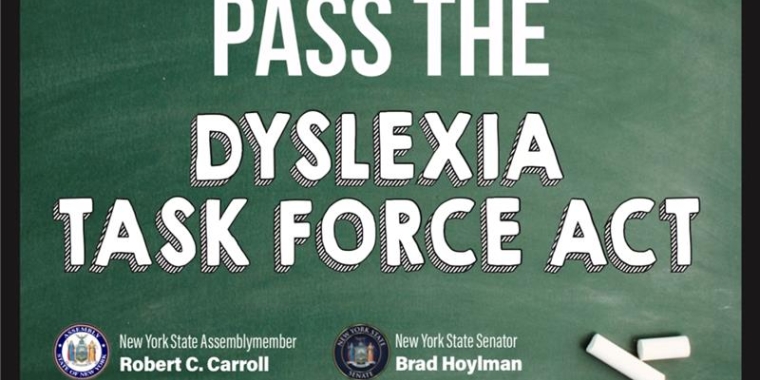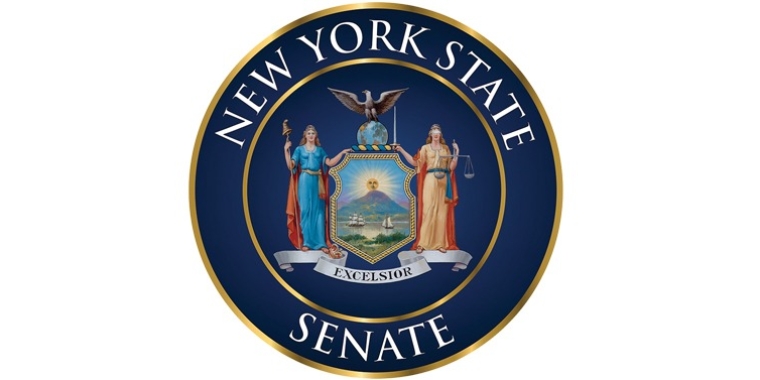
“DYSLEXIA’S NOT GOING AWAY, AND NEITHER ARE WE”: Historic Dyslexia & Dysgraphia Legislation is RE-PASSED by NYS Senate and Assembly Education Committees After Governor’s VETO Last Year
March 1, 2023
-
ISSUE:
- dyslexia

NEW YORK — This week, the respective New York Senate and Assembly Education Committees re-passed the “Dyslexia Task Force Act” (S2599), sponsored by Senator Brad Hoylman and Assembly Member Robert Carroll. The Dyslexia Task Force Act would establish standards to examine and report on evidence-based identification and support for students at risk of dyslexia and dysgraphia. The bill was unanimously passed by both the State Senate and State Assembly, but vetoed by Governor Hochul last year. The Act’s findings could improve the lives of hundreds of thousands of students statewide.
State Senator Brad Hoylman, Prime Senate Sponsor of the Dyslexia Task Force Act, said: “The Governor’s veto of the Dyslexia Task Force Act last year was one of the most disappointing in recent memory. But for over 900,000 New York school kids with this reading disorder, dyslexia’s not going away, and neither are we. I’m extremely grateful to my colleague Senator Mayer for making re-passage of the Dyslexia Task Force Act a priority. It’s past time our state addresses this issue and our legislation could be a learning lifeline for thousands of children who grapple with dyslexia and dysgraphia, including my 12-year old daughter, Silvia.”
Assembly Member Robert Carroll, Prime Assembly Sponsor of the Dyslexia Task Force Act, said: “This bill represents an important step towards holistically addressing the literacy crisis in our schools. With only 35% of 4th graders reading at grade level, it’s clearer to me than ever that we must follow the science and fully implement evidence-based screening and reading interventions for children with dyslexia and related disorders. The Governor’s veto last year notwithstanding, we in the legislature will continue to push ahead for what we know is right.”
State Senator Shelley Mayer, NYS Senate Education Chair, said: “I am very pleased the Senate Education Committee once again passed Senator Hoylman-Sigal’s bill to establish a dyslexia and dysgraphia task force. This legislation will allow New York to identify the best methods for screening students who are struggling and providing reading intervention and support. These support systems can be life-changing for students with learning disabilities – every child deserves the resources needed to succeed in school and beyond. I thank Senator Hoylman-Sigal for his persistent attention to this issue and for carrying this legislation, and I thank my colleagues in the Education Committee for moving this bill.”
Assembly Member Michael Benedetto, NYS Assembly Education Chair, said: “As a former teacher, I know that if you are going to teach someone something you better know what impediments that person may have to learning. For so many children who have dyslexia this knowledge can come too late. This bill is a beginning to make sure this happens right at the start of the learning experience. My congratulations to Assembly Member Carroll on his legislation.”
More than one in five students has dyslexia or another language based learning disability. The current education system uses a balanced literacy approach, which is an ineffective way to teach literacy that is harmful to dyslexic students. A direct multisensory structured literacy approach, known as Orton-Gillingham, is essential for the 20% of students with language based learning disabilities, and is how 95% of all students learn to read.
According to NYC Department of Education data for the 2018-19 school year, 75,000 students in NYC have a learning disability. Just 16% of those students were proficient in reading on state tests in 2019, compared with 47% of general education students.
This bill will establish a task force to examine and recommend screening methods, reading interventions, and other educational supports to provide these students the classroom resources they require for a lifetime of literacy.
###
